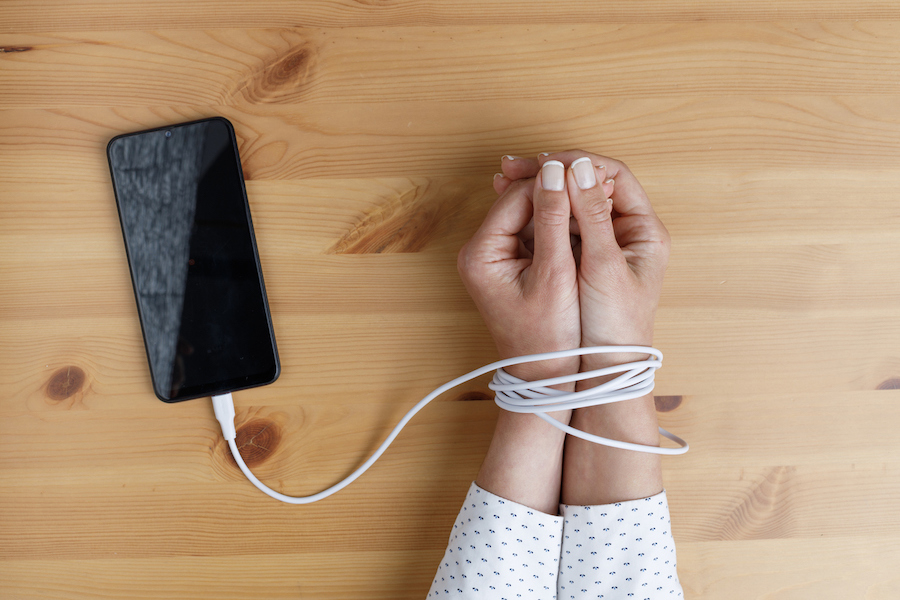Subtle Addictions
By Dr. Margaret PaulMarch 27, 2023
Many people are not aware of their subtle addictions - addictions that are often so covert that they are as invisible to us as the air we breathe.
 Many people are aware of the fact that addictions are used to avoid pain, and most of us are aware of the common addictions: food, alcohol, drugs, gambling, TV, spending, work, sex, rage, and so on. Most people, however, are unaware of their more subtle, yet often pervasive, addictions. Yet these addictions may be impacting us negatively as much as the more overt addictions.
Many people are aware of the fact that addictions are used to avoid pain, and most of us are aware of the common addictions: food, alcohol, drugs, gambling, TV, spending, work, sex, rage, and so on. Most people, however, are unaware of their more subtle, yet often pervasive, addictions. Yet these addictions may be impacting us negatively as much as the more overt addictions.
Take Sam, for example. Sam is the kind of person who ends up doing everything, both at home and at work. Sam works much harder in his retail business than either of his two partners, and often feels overwhelmed by the amount of work he has to do. On weekends, he ends up doing a lot of work around the house, even though he has two strong teenagers who could be helping out. Even when others offer to help, Sam turns them down. Sam is devoted to being a "nice guy" and caretaking others - doing for others what they need to be doing for themselves.
The Deeper Level is the Intent to Control
On a deeper level, Sam is always trying to control how others perceive him. He wants them to see him as a caring person and often feels victimized when others do not give him the approval he seeks. Then, when others react to his attempts to control how they feel about him with irritation or withdrawal, Sam is angry that they are not approving of him. When he is really upset, he will get drunk. He will often obsessively ruminate about how unjust his wife is or his partners are. If his wife wants to explore their problems, Sam goes into defending, explaining, and resisting, stating that she is trying to control him. When nothing else works, Sam will withdraw.
There are many addictions going on here. The more overt ones are work, anger, and drinking. Sam is also addicted to approval, to controlling how others see him through caretaking, to being a victim and blaming others for his misery, to obsessive thinking (ruminating), to defending, explaining, resisting, and withdrawing. All of these addictions serve the same purpose as the more overt addictions. They are all attempts to have control over getting love or approval and avoiding pain.
You might want to honestly look inside and see what some of your covert addictions are:
-
Are you addicted to blaming others for your unhappy feelings?
-
Do you use anger or tears to attempt to make others responsible for you?
-
Are you addicted to illness as a way to avoid personal responsibility for yourself?
-
Do you constantly give yourself up in an attempt to control how others feel about you?
-
Are you more focused on trying to control others’ feelings about you than you are in taking loving care of yourself?
-
How much of your thinking time is spent in daydreaming about what you want to say to others or how you wish life was instead of actually taking loving action for yourself?
-
Do you get obsessive in your thinking about what you will say or do in a particular situation?
-
How often do you explain and defend yourself rather than open to learning?
-
How often do you get angry or withdraw to avoid dealing with yourself?
-
How much time do you spend analyzing and figuring out yourself and others as a way to have control?
-
Do you ruminate and worry about the future, thinking this will give you control over outcomes?
-
Do you escape into technology to avoid your feelings?
- Any behavior other than taking loving, responsible care of yourself and being open to learning with yourself and others is addictive. All addictive behaviors are attempts to control rather than learn. Our intent - to either control or to learn - actually governs all our behavior. Being aware of our intent is basic to the practice of Inner Bonding.
Join Dr. Margaret Paul for her 30-Day at-home Course: "Love Yourself: An Inner Bonding Experience to Heal Anxiety, Depression, Shame, Addictions and Relationships."
 Send this article to a friend
Send this article to a friend  Print this article
Print this article  Bookmarked 0 time(s)
Bookmarked 0 time(s)
| Related Articles |
|---|
| Recovering from a Worry Addiction |
| Addiction to Thinking |
| Addiction to Perfection |
| Addiction to Numbness |
| Addiction to Fantasy and Daydreaming |
| Addiction to Clutter |
Comments
| Author | Comment | Date |
|---|---|---|
| Join the Inner Bonding Community to add your comment to articles and see the comments of others... | ||

Daily Inspiration
Acceptance is a great gift to give to yourself and others - acceptance of talents and of limitations. We each have been given special gifts to offer the world, and we each have our limitations. To be loving means to embrace, value and honor our gifts, and to lovingly accept our limitations.
By Dr. Margaret Paul

 Share with Del.icio.us
Share with Del.icio.us Share with Digg
Share with Digg







